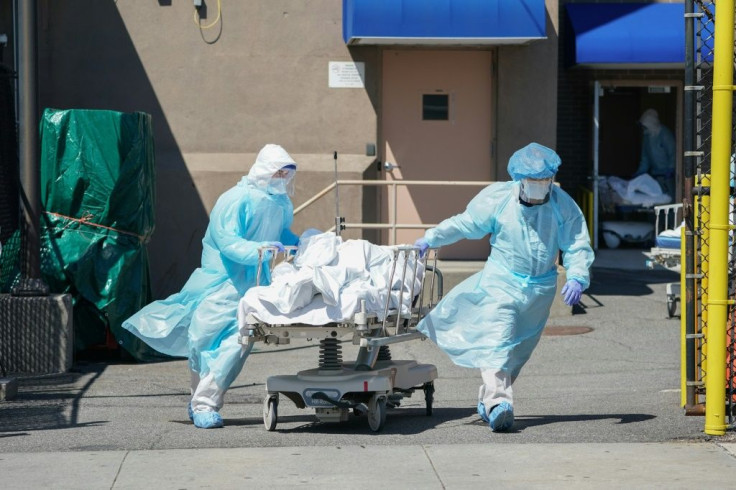NY County Eyeing Refrigerated Farm Building For COVID-19 Victims If Morgues Reach Capacity
KEY POINTS
- Suffolk County is seeing increases in coronavirus cases and deaths
- The county is looking at using a refrigerated farm building as a makeshift morgue
- Authorities wil not use the farm building until morgues are at capacity
Suffolk County in Long Island is looking at the possibility of using a refrigerated farm building for the bodies of COVID-19 victims should the morgues run out of space. The plan comes as Suffolk sees increases in the number of coronavirus cases and deaths.
"At the early stages of this crisis, we were having conversations about suggestions of using ice rinks and stores with refrigeration to store bodies," County Executive Steve Bellone said in a statement, according to the New York Post. "I made the decision that I was not going to tell families that we need to convert their children's ice-skating rinks and turn them into morgues because that is not who we are."
In March, an ice skating rink inside a shopping mall in Madrid was turned into a temporary morgue to deal with the surge in coronavirus deaths. Similarly, the state of Maryland has leased two ice skating rinks to be used as possible makeshift morgues, while New York City's Central Park now hosts a satellite hospital and a pop-up morgue.
Such scenarios are likely what Suffolk County wants to avoid and, therefore, decided on another alternative. Instead of using ice skating rinks or other public facilities, the county is already beginning the process of converting the refrigerated farm building on county-owned Suffolk County Farm in Yaphank into a makeshift morgue. That said, authorities are not expecting to use the building until morgues have reached capacity.
As of April 7, Suffolk county has recorded a total of 14,517 coronavirus cases and 266 deaths, with the county's morgues already at half capacity. Unfortunately, the numbers might only increase as Suffolk has recently been seeing over 1,000 new coronavirus cases daily.
"I'm having conversations I never imagined that we would have every day on our emergency operations center call. We talk about what our morgue capacity is and [whether] we have enough body bags," Bellone told America's Newsroom on Tuesday. "We can see the death tolls and they are horrific. But I think to a great extent, what we can't see, the emotional toll, is going to be even greater at the end of the day on families, on people who have lost loved ones and haven't been able to be with them while they are dying in hospitals."

© Copyright IBTimes 2025. All rights reserved.






















